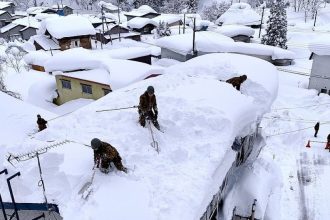Pakistan’s year-on-year inflation rate, as depicted by the Consumer Price Index (CPI), escalated to 31.4% from 27.4% in August, according to Monday’s data from the Pakistan Bureau of Statistics (PBS). This increase is attributed to the spiking energy expenses, especially after the government amplified fuel prices to meet the International Monetary Fund’s (IMF) criteria for a $3 billion bailout.
The nation’s efforts to stabilize its economy are further burdened by the conditions of the IMF loan acquired in July, which directly impacts inflation management.
Detailed Breakdown and Market Expectations
Urban CPI inflation surged to 29.7% YoY in September 2023, an uptick from the previous 25% and 21.2% in September 2022. Conversely, rural inflation recorded an even steeper rise to 33.9% YoY for the same period. Industry experts, like those at JS Global and Arif Habib Limited (AHL), had anticipated this inflation trajectory. Both anticipated readings of 30.6% and 31.1%, respectively.
The Ministry of Finance, meanwhile, anticipates continued high inflation rates of around 29-31%, attributed to adjustments in energy tariffs and fuel price spikes. Despite this, the Ministry foresees an inflationary ease in the latter half of the fiscal year. Analysts, including Tahir Abbas of AHL, predict this is the peak for the fiscal year’s inflation, expecting a drop to around 26-27% in upcoming months.






